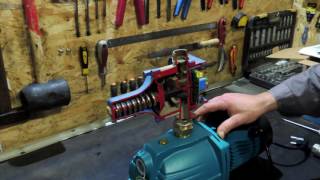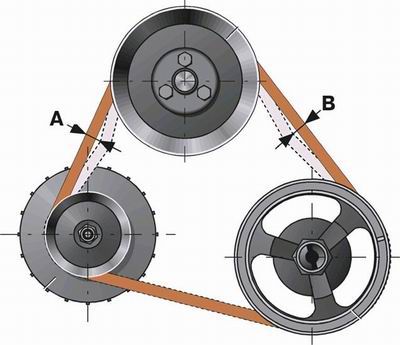
Symptoms of a Bad or Faulty Anti-Lock Pressure Switch
Content
If your ABS system is not working or works all the time, or if your brakes are locking up, you may need to replace the anti-lock pressure switch.
The ABS system is a safety feature that is found on almost all modern cars. It is made up of several components that work together to help slow down the vehicle, reduce wheel lockup, and prevent tire slip during hard braking and slippery conditions. One of the components of the ABS system is the ABS pressure switch.
The ABS pressure switch is responsible for monitoring the pressure of the ABS pump or module, since the ABS system cannot function unless the fluid level and pressure are at a certain minimum. For this reason, when the ABS pressure switch fails or has problems, it can significantly affect the operation of the entire ABS system and should therefore be checked or replaced as soon as possible. Usually, when an ABS pressure sensor fails, the vehicle will show several symptoms that may alert the driver to a potential problem.
1. Unexpected wheel lockup due to ABS system failure
One of the most obvious signs that the ABS pressure sensor has failed is a non-functional ABS system. The ABS pressure switch is one of the key components of the ABS module's cycling behavior, so if it has any problems it can seriously affect the ABS system. A completely failed ABS pressure switch will not be able to signal the pump to turn on, and the system will not work.
2. ABS is constantly working
Another sign of a possible faulty pressure switch is a constantly running ABS pump or module. The ABS pressure switch plays a direct role in cycling the pump on/off. If it has any problems, it can send a bad or inconsistent signal to the ABS pump and cause it to malfunction. If the ABS pressure switch fails or has problems, it can cause the pump to constantly turn on and off unnecessarily. This will lead to accelerated wear of the pump and, ultimately, to its burnout.
3. Brake lock
Locking brakes and slipping tires during heavy braking and on slippery roads are another sign of a possible faulty pressure switch. This may be caused by the ABS pressure switch not being able to activate the pump or module. Without a properly functioning switch to turn on the pump, the ABS system will not work and the vehicle will be more prone to skidding and locking tires under heavy braking.
Since the ABS pressure switch plays a direct role in the proper functioning of the ABS system, it is an essential component of any vehicle. For this reason, if you suspect that your ABS pressure switch may have a problem, see a professional technician, such as one from AvtoTachki, for proper vehicle diagnostics to determine if the ABS pressure switch should be replaced or other repaired. must be done.
